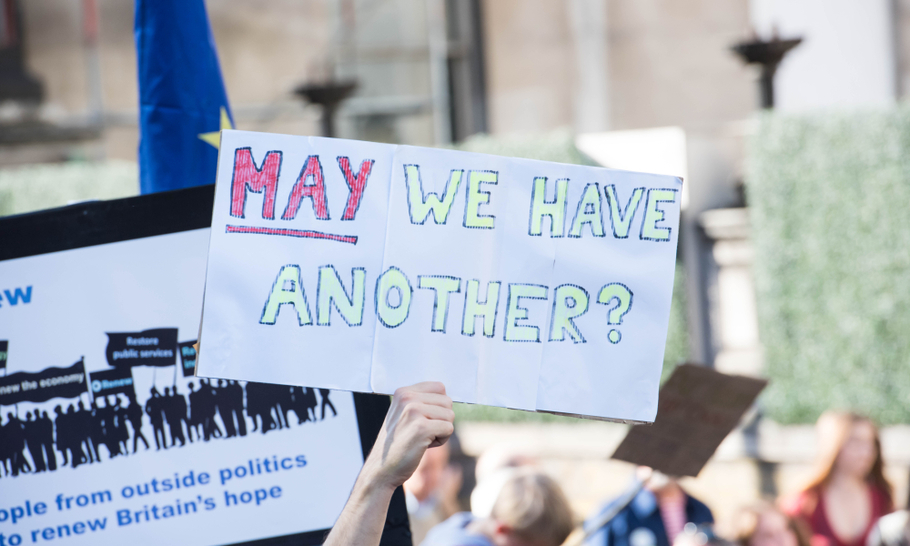Politicians of all stripes have diluted the power of referendums. And there will be consequences

Harold Wilson tipped over the first domino that led to Brexit. His 1975 EEC referendum established two principles: first, that referendums were part of the UK’s constitutional settlement, and second, that the UK’s EEC membership could be the subject of one. The minority Labour government held two further referendums over Scottish and Welsh devolution to preserve knife-edge Commons arithmetic. To command confidence, Labour needed Scottish and Welsh nationalists’ votes. After both devolution referendums failed, Labour lost a vote of confidence by 311 to 310 when a Conservative and Unionist Party led by Margaret Thatcher was supported by the SNP.
Labour was punished by voters in 1983 in part when a policy of disregarding the 1975 vote was in their manifesto. The Conservatives under John Major turned down the public call for a referendum over the UK’s membership of a single European currency. The outcome was the creation of a whole new political party whose vote-splitting contributed to the Labour landslide. The principle established was that there was support for a party that would campaign for the use of a referendum to limit or reverse the UK’s membership the EU.
Despite a landslide majority, Tony Blair re-ran the Welsh and Scottish devolution referendums. This established the principle that a referendum decision could be revisited after a long interval, in this case almost two decades. The vote was part of Blair’s project to secure the largest mandate for Labour by getting nationalists to go red.
A covenant with the voter had been established. In the above cases, governments were explicit in stating that they would respect the outcome of the referendums. Respecting this covenant had led to Labour’s fall from office in 1979 and traumatised the party for a decade.
The failure of the SNP to achieve independence in the 2014 referendum did not establish the principle of a relatively immediate second referendum on the issue. While losing the 2014 vote boosted the SNP’s fortunes in the 2015 General Election, the long-term effect has been damaging. The polarisation of politics north of the border has resulted in a renaissance for the Conservatives, at the expense of the SNP. Part of the revival can be explained by the SNP’s semi-overt refusal to accept the result of the 2014 referendum and obsession with working towards a fresh vote. Put simply, the SNP broke the covenant, and the voters responded.
David Cameron acted in a way not too dissimilar from Harold Wilson when his 2015 manifesto promised a referendum on membership of the EU. UKIP was eating into his support, having won the 2014 EU Parliament elections.
This covenant between electors and the elected, irrespective of party, has now been all but destroyed by Brexit. For three years voters have seen politicians refuse to respect the result of a referendum. A new principle has been established, which is that the term of a referendum result has been dramatically shortened – and fixed by the size and demographic of the majority. The grotesque argument has been made that because so many people who allegedly voted Leave have now died, the vote is no longer valid. Professional pollsters, to their eternal shame, have produced statistics to show the date the UK allegedly became a ‘Remain’ country due to these deaths.
This obscene fanaticism of the Remain lobby has long-term consequences. All arguments used by the Remain campaign can be applied to every future referendum on any issue. The principle has been established that Parliament can delay or prevent the outcome of a majority public vote, which unless legislated as binding can only be advisory.
Future polls will have to be much better regulated. Any future referendum might need two rounds. The decision could be for a fixed term and thus subject to revision in a new poll. A second EU referendum could consist of two rounds of voting, as the new poll would not be a second round in its own right. The government would also be required to implement the decision within a fixed time-frame, and devote time and resources to plan for both outcomes before the vote takes place.
It could be that a future government could ignore all these principles behind this implicit covenant with the voter. But then this might result in a judicial review, which the government would lose using Brexit as a precedent. At present, the voting public would be right to believe that participating in a referendum is a pointless exercise.




